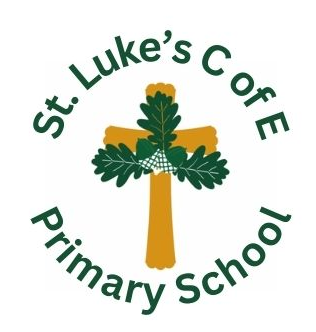History
History Purpose of Study
The National Curriculum for History aims to ensure that all pupils:
- Know and understand the history of these islands as a coherent, chronological narrative, from the earliest times to the present day: how people’s lives have shaped this nation and how Britain has influenced and been influenced by the wider world
- Know and understand significant aspects of the history of the wider world: the nature of ancient civilisations; the expansion and dissolution of empires; characteristic features of past non-European societies; achievements and follies of mankind
- Gain and deploy a historically grounded understanding of abstract terms such as ‘empire’, ‘civilisation’, ‘parliament’ and ‘peasantry’
- Understand historical concepts such as continuity and change, cause and consequence, similarity, difference and significance, and use them to make connections, draw contrasts, analyse trends, frame historically valid questions and create their own structured accounts, including written narratives and analyses
- Understand the methods of historical enquiry, including how evidence is used rigorously to make historical claims, and discern how and why contrasting arguments and interpretations of the past have been constructed
- Gain historical perspective by placing their growing knowledge into different contexts: understanding the connections between local, regional, national and international history; between cultural, economic, military, political, religious and social history; and between short- and long-term timescales.
History Intent
At St. Luke’s we believe a high-quality History curriculum should inspire pupils’ curiosity to know more about the past – through local links where possible. History helps pupils to understand the complexity of people’s lives, the process of change, the diversity of societies and relationships between different groups. It also helps children gain a sense of their own identity within a social, political, cultural and economic background. Teaching should equip pupils to ask perceptive questions, think critically, weigh evidence, sift arguments, and develop perspective and judgement.
At St. Luke’s, the History curriculum has been carefully sequenced so that as pupils progress, they gain a coherent knowledge and understanding about the history of Britain and how it has influenced and been influenced by the wider world. Through an understanding of and experience of using the methods of historical enquiry, we want the children to become critical thinkers, learn lessons from the past and gain lifelong analytical skills.
History Implementation
Following the ‘Development Matters’ guidance in EYFS, our Reception children gain an ‘Understanding of the World; people and communities; the world and technology’ and come into KS1 with the foundations laid for History. At St. Luke’s we implement a History curriculum that;
- Meets the objectives outlined in the National Curriculum , a copy of which can be found here.
- Is progressive throughout the whole school, with three distinct milestones of KS1, LKS2 and UKS2. Each milestone will include objectives of five substantive areas: Chronology, Invasion and Empire, Settlements & Social history, Crime & Punishment and Communication & invention.
- Is delivered on a half-termly timetable, where History and Geography are taught alternate half-terms. As such, approximately 30 hours of History is taught each academic year.
- Has progressive disciplinary knowledge across each year group into each unit, providing opportunities for retrieval practice of prior knowledge and vocabulary
- Has carefully considered substantive knowledge across class groups
- Provides whole class adaption through questioning and various methods of recording
- Is enhanced by trips and visiting experts where appropriate.
History Impact
Our History Curriculum is high quality, well-thought out and planned to demonstrate progression. Children will become more analytical and improved critical thinkers, making informed and balanced judgements based on their knowledge of the past. They will develop an understanding of how historical events have shaped the world that they currently live in, enabling pupils to place themselves and their families in the world. We measure the impact of our History curriculum using the following measures:
- Evidence from children’s books will show a broad and balanced History curriculum, demonstrating appropriate pitch and challenge. Standards in History will be high and will match standards in other subjects such as English and Maths.
- Our Long-Term Plan (LTP) and teacher’s subsequent Essential Learning Summaries (ELS documents) will show a clear progression of knowledge across Key Stage 1 and 2 that builds on prior knowledge.
- Pupil discussion about their learning
- Termly teacher judgements track progress and inform subsequent planning.
St. Luke's Values in History
Through their study of History, the St. Luke’s Values are realised, allowing every pupil to FLOURISH:
Friendship: By learning about alliances, communities, and cooperation across history, pupils reflect on the importance of working together. They develop skills of collaboration in group work and historical enquiry.
Love: Through studying significant figures and movements motivated by love, compassion, and justice (e.g. abolition of slavery, civil rights), pupils learn how caring for others has shaped societies.
Originality: Pupils use creative thinking to interpret evidence, present arguments, and communicate historical knowledge in imaginative ways, showing how originality can help us understand the past.
Understanding: Pupils develop empathy for people in the past, recognising diverse perspectives and experiences. They learn to respect difference and deepen their understanding of the human story.
Resilience: By examining the resilience of individuals and communities in history (e.g. wartime, migration, civil rights struggles), pupils are inspired to apply resilience in their own learning and lives.
Integrity: History demands respect for truth and evidence. Pupils learn to weigh interpretations, form judgements with integrity, and value accuracy over assumptions.
Selflessness: Pupils learn from examples of compassion and sacrifice in history, understanding how acts of selflessness can change lives and shape societies.
Hard Work: Pupils are expected to research carefully, think deeply, discuss thoughtfully, and present their ideas clearly. Historical understanding comes through diligent enquiry and effort.
